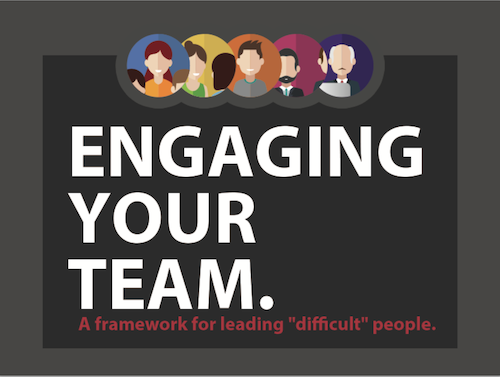What is it You Do?
When I explain to people what we do . . . use intensive interviewing to understand work teams and assist leaders through the development and implementation of action plans . . . I often get the question, "Don't leaders already know what is going on with their employees?” Good question. I think implicit in this question is a common misunderstanding. I think what is being asked in this case is often something like, "Do you really think that there are a lot of leaders out there with no idea of what is going on with their employees?" If this, revised, question is closer to what they are really asking, then the answer is an emphatic, "No!"
In fact, I trust that most leaders have a good idea of what is going on with employees. I believe that the majority have spent significant amounts of time trying to understand their employees and the impact of their leadership decisions on those employees. (This is why I think that consulting approaches that do not see the role of the consultant as a collaborative one are often misguided!) But . . . consider this . . .
Parents, arguably, know more about their children than anyone, yet often "what they know" can become the seeds of problems between them and their offspring. "You don't understand!" is a common complaint among those children. People are complex. Couples, likewise, know more about their partner than they know about any other of their relationships . . . and often have more trouble. Regularly it is at least partially because their knowledge invites them to assign blame and an unwillingness to make changes. Each person’s history of learning to cope and maintain their own psychological safely is unique and employee’s learn to lie . . . to themselves and others.
Knowing isn’t Understanding . . . Or a Plan of Action!
No, simply "knowing" is not enough. Leaders need to continue to challenge what they know--testing it to check it's validity. Leaders need a vision of where they want to go but they also need a clear understanding of where they are--without the polarizing lenses of self-deceiving "knowledge." The gap in a leader's "knowing" is reflected when a leader proclaims of his/her team "we are a family" only to have an employee mutter "a dysfunctional family."
Examples of Things Leader’s “Know” that Sustain Problems
Here is a list of things that leaders "knew" when we were contacted by them or began working with them. In each case, this knowledge proved to be a barrier to knowing rather than an accurate understanding of the situation.
people understand my irritability because I come from a different part of the country . . . it shouldn't effect how they view me as a leader
we provide information about employee benefits in a number of ways and times so employees can't have issue with that
if we tell employees about the financial status of the company they will have worse attitudes than they do now
my daughter is just stressed but she still appreciates working in the family business
the way we interact with employees works . . . its these particular employees attitudes that are the problem
we have a plan that all the leaders have agreed to and support
if I'm not in the room bad things happen (leader who refused to leave when board talked about his job performance, salary, etc.)
we already fane a (financial) consultant we can just use him to help us figure out the people issues
our family can handle these issues without getting an "outsider" involved (family business member now in litigation with siblings)
Learn more . . .
Get our free ebook Engaging Your Team: A framework for leading "difficult" people. for joining our email list,
or, if you prefer, you can simply buy it.
HSC provides free and low-cost resources for leaders. Here are some of our related posts:












